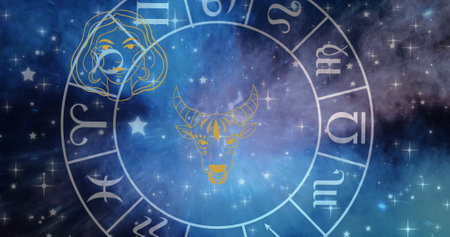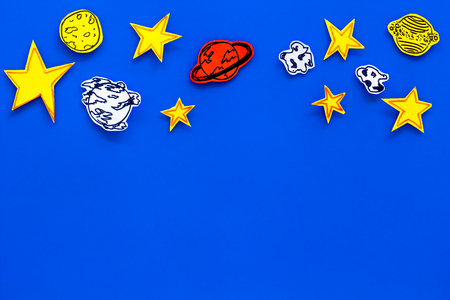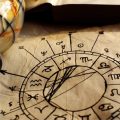Monarchy, Marmite, and Mysterious Ancestors
Let’s face it: when most Brits peer nervously into the sepia-tinted abyss of their ancestry, they’re not discovering a direct line to Queen Victoria—unless you count that one time Aunt Marjorie wore a tiara to Tesco. No, British family patterns are less “noble lineage” and more “passionate debates over whether you love or loathe Marmite.” While some family trees might have sprouted the odd baron or scandalous duchess, the vast majority of us are descended from a long, distinguished line of tea-obsessed biscuit dunkers and coal miners who could out-grumble a rainy Tuesday in Hull. Yet, armed with an Ancestry.com free trial and an unshakeable hope, every British household harbours at least one member convinced the Domesday Book holds proof of a great-great-great uncle who once exchanged pleasantries (or fisticuffs) with William the Conqueror. It’s this peculiar blend of pride, denial, and mild obsession that forms the backbone of Britain’s unique approach to ancestry: never quite royal, always slightly eccentric, and constantly fuelled by endless cups of milky builder’s tea.
2. Tea, Genes, and Family Oddities
If you’ve ever witnessed a British family assemble for Sunday roast, you’ll notice a few things: the kettle is always on, everyone’s queuing for gravy as if it’s a pop-up at Glastonbury, and there’s at least one uncle who claims Winston Churchill was his mate. But what makes these classic British family quirks—like the national obsession with orderly queues—such an unshakable part of the household tapestry? Is it written in our DNA, drilled into us by generations of stern grandmothers, or is there something suspiciously powerful about what’s swirling around in our mugs of Earl Grey?
Dissecting British Family Traits
| Trait | Genetics | Upbringing | Tea Influence |
|---|---|---|---|
| Queuing like pros | Possible (queue gene?) | Certain (taught from birth) | Might help with patience |
| Mild emotional repression | Likely hereditary | Reinforced by parents’ stiff upper lips | Earl Grey provides comfort zone |
| Obsessive tea-making rituals | Distant genetic memory of Empire? | Absolutely – see “how to make a proper brew” arguments | Main suspect for odd behaviour |
| Tendency to apologise for everything | Possibly bred into us after centuries of rain-induced gloom | A rite of passage during school years | Might be a side effect of too much tannin |
The Ongoing Nature vs. Nurture vs. PG Tips Debate
While scientists are still arguing whether our ability to form a neat queue at 6am is genetically encoded or learned faster than you can say “put the kettle on,” there’s mounting evidence that British families are shaped by a potent blend of all three: genes, upbringing, and relentless exposure to caffeinated beverages. So next time your gran insists on using the “good cups” for visitors or your cousin apologises profusely to the toaster for burning crumpets, consider whether it’s nature, nurture—or just another side effect of being raised under the watchful gaze of the Moon (and possibly Queen Victoria’s portrait).

3. The Moon’s Not Just for Howling
If you’ve ever found yourself at a family gathering in the British Isles, clutching a cup of weak tea while Uncle Nigel recites dubious tales about your Viking ancestry, you may have wondered: does the full moon have a hand in these curious rituals? It’s a question that’s divided families from Cornwall to Caithness—right alongside the age-old debate over how to pronounce “scone.” Some say the lunar cycle has no more influence than a bad batch of Yorkshire pudding, but others suspect the full moon is the cosmic puppeteer behind spontaneous fridge raids and Aunt Mildred’s interpretive dance outbreaks at weddings.
The Full Moon and Family Frenzy
Let’s face it: British families are renowned for their subtle eccentricities. You could chalk up cousin Jamie’s late-night cheese hunts to hunger, but if you track the calendar, you might notice they peak during the full moon. Coincidence? Or is there something delightfully lunar about these midnight snack attacks?
Lunar Logic or Lively Legends?
Science might scoff—claiming it’s all psychological or down to too many episodes of EastEnders—but folklore has always had other ideas. From werewolves to mysterious increases in questionable dance routines at family functions, the moon gets blamed for everything short of running out of digestives during tea time.
Aunt Mildred: Lunar Dancer Extraordinaire
No discussion would be complete without mentioning Great Aunt Mildred. Every family has one: that relative who only busts out her “interpretive” moves when the moon is high and spirits (and sherry) are higher. Is she channeling ancient ancestral energies or just having a good time? Either way, her moonlit performances are as much a family tradition as arguing over who gets the last roast potato.
So, whether you’re sceptical or secretly tracking lunar phases before planning your next family do, there’s no denying that the full moon seems to bring out something special in British households. Perhaps it’s not science—it’s simply what happens when ancestry, tradition, and a dash of lunacy meet under the glow of a particularly cheeky moon.
4. Inherited Quirks and The Great British Bake Off Effect
Let’s be honest: when you catch yourself alphabetising the spice rack, is it because your great-great-grandmother was a Victorian librarian, or because you’ve spent one too many evenings bingeing The Great British Bake Off? The British have always been obsessed with family traditions, but thanks to modern telly, our “ancestral patterns” now include the art of constructing structurally unsound gingerbread houses and arguing over soggy bottoms. This conundrum—nature, nurture, or Noel Fielding—is at the very heart of today’s British household quirks.
Pondering the Source of Your Oddities
Consider the following: are your obsessive tea-making rituals inherited from centuries of stiff-upper-lipped ancestors, or did they begin when Mary Berry raised an eyebrow at someone’s brew on national television? Sometimes it’s difficult to tell which of our family habits are genuinely ancient and which are just byproducts of cultural phenomena (and perhaps a little lunar madness for good measure).
Family Habits: Ancestral Roots vs. Bake Off Influence
| Habit | Likely Ancestral Origin | Possible Bake Off Influence |
|---|---|---|
| Baking scones every Sunday morning | Granny Edith, 1920s Yorkshire | Tried to impress Paul Hollywood once, still traumatised |
| Overuse of bunting in home décor | Celtic love for colourful celebrations | Bunting appeared in every episode; now compulsive |
| Naming the sourdough starter “Sir Crumpet III” | A long line of eccentric uncles | Inspired by bakers giving personalities to yeast blobs on TV |
| Panic during cake timing (“It’s not set!”) | Inherited anxiety from blitz-era rationing mums | Echoes of Mel and Sue yelling “bake!” haunt your dreams |
| Judging neighbours’ pies harshly at fêtes | Aunt Mildred’s competitive streak, 1956 village show winner | You’ve watched so much judging you now critique everything edible |
The Lunar Factor (Because Why Not?)
If all else fails, blame it on the moon. After all, isn’t it just possible that a full moon is what compels Uncle Tony to attempt croissants at 2 a.m., or makes Grandma Mavis extra ruthless with her scone critiques? Whether ancestral or inspired by primetime telly—or, dare we say, cosmic forces—the modern British family is a glorious mashup of quirks old and new. So next time someone questions your urge to dust everything in icing sugar, just shrug and say, “It runs in the family.” Or maybe it’s just Tuesday night on Channel 4.
5. Superstitions, Lunar Lullabies, and Friday Fish & Chips
When it comes to British families, ancestral quirks and moon-induced madness go together like tea and digestive biscuits—impossible to separate and slightly soggy around the edges. It’s no secret that the UK is a veritable petri dish of superstitions: from avoiding walking under ladders (unless you’re chasing a runaway corgi), to saluting magpies with a solemn “Good morning, Mr Magpie,” as if you’re greeting an avian tax inspector. But perhaps the most cherished tradition is the sacred Friday evening pilgrimage for battered cod and chips—a ritual so powerful it could unite even the most divided family WhatsApp group.
Now, let’s survey the influence of lunar cycles on these beloved customs. Some families swear blind that a full moon means your fish will be crispier, your mushy peas greener, and your vinegar pour more generous. There are whispers (usually after three pints at the local) that eating fish on a waning moon brings bad luck, possibly explaining why Uncle Nigel always forgets his wallet on those nights. Others claim that new moons are best for trying something wild—like ordering scampi instead of cod—though such heresy may result in temporary banishment from the chippy queue.
Of course, science offers little support for the notion that the moon governs one’s appetite for haddock or whether your tartar sauce will curdle. Still, British family patterns are built less on logic and more on tradition, superstition, and a robust ability to blame cosmic forces for questionable takeaway choices. The true magic lies in gathering every week, debating whether “the moon looks particularly chip-shaped tonight,” and maintaining the time-honoured belief that somewhere out there, Granny is watching over us—all while keeping an eye on our lunar calendars and our cholesterol.
6. Family Trees, Pub Chats, and Mistaken Identity
If you think tracing your British ancestry is as simple as popping down to the local pub and interrogating the nearest Smith over a pint, then congratulations—you’ve just discovered the first common pitfall of family research: mistaken identity. In Britain, family trees are less like elegant oaks and more like sprawling brambles tangled around centuries of Johns, Marys, and that one mysterious cousin nobody talks about.
Picture this: you’re sitting at The Old Dog & Duck, armed with an ancestry app and a pint of warm ale. You strike up a conversation with a bloke whose granddad’s name was also John Smith. Sparks fly—surely this is your kin! But beware, dear genealogical detective; in these hallowed Isles, “John Smith” is about as rare as rain in Manchester.
Brits have long enjoyed tracing their roots through epic tales over pints—sometimes embellished with more hops than historical accuracy. There’s always that uncle who swears you’re descended from minor royalty (usually based on nothing but his uncanny resemblance to Henry VIII after three shandies).
As you piece together your family pattern, remember: surnames were once chosen for occupations or locations (hence all those Bakers, Butchers, and Londons), and not every pub tale withstands the harsh scrutiny of the parish records. Still, the pub chat is practically sacred—a form of oral history where fact and fantasy dance under the glow of a dartboard.
And let’s not even mention the Moon’s influence after midnight at your local—lunar cycles can turn even the most sensible family historian into a conspiracy theorist convinced their nan was a secret Victorian spy.
So next time you’re tempted to claim every Smith in Surrey as your relative, remember: British ancestry is best traced with equal parts scepticism, laughter, and perhaps another round.
7. Moonlit Revelations: What We’ve Learnt Under the British Sky
So, here we are at the end of our celestial stroll through ancestry, family patterns, and a suspiciously influential moon—all played out beneath the unpredictable British sky. If you’ve made it this far without putting the kettle on thrice or consulting your granny about family secrets, then hats off to you (preferably a flat cap for full effect).
The Ancestral Brew
Looking back, it’s clear that our British families are less like neat family trees and more like overgrown hedgerows: tangled, prickly, and occasionally hiding a badger. Ancestry here isn’t just about tracing lineage to some distant earl—it’s also about why Uncle Nigel insists on eating baked beans with every meal and why your mum can predict rain better than the Met Office.
Quirks Passed Down Like Teapots
If there’s one thing we’ve learnt, it’s that odd habits are as hereditary as ginger hair and an aversion to warm beer. The way grandad howls at the full moon? Maybe he’s not mad after all—just following a time-honoured tradition of lunar lunacy. And let’s not forget those mysterious family recipes no one actually likes but everyone feels compelled to pass down anyway. Is that heritage or just stubbornness? In Britain, it’s usually both.
Lunar Logic and Family Lunacy
The moon above Albion isn’t just for poets and werewolves. Its silvery gaze seems to nudge us into everything from midnight gardening to ill-advised karaoke sessions at weddings. And don’t get us started on what happens during a lunar eclipse—let’s just say it explains a lot about Boxing Day arguments and why nobody remembers where they left the remote.
The Full English (Family) Breakfast
Ultimately, what ties us together is this glorious mess: ancestry adding spice, peculiar family patterns providing flavour, and the moon throwing in a dash of cosmic mystery. Mix these up, serve with a side of sarcasm and an extra sausage, and you’ve got the full English Breakfast of British family life—a little chaotic, undeniably comforting, and best enjoyed with plenty of tea and laughter.
So next time you’re puzzling over your family tree—or just why Auntie Beryl only calls during a blue moon—remember: under the British sky, we’re all part of the same wonderfully odd lunar legacy. Cheers to that!


